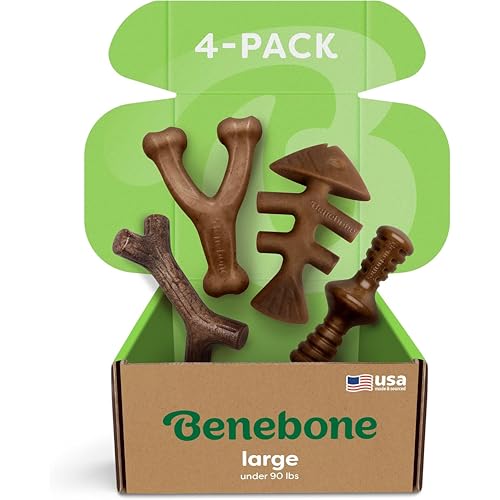Pregnancy is a beautiful journey for any dog, but it comes with its own set of challenges, especially for our beloved Golden Retrievers. As a proud owner of this affectionate breed, I know how important it is to ensure their health and well-being during this critical time. From proper nutrition to regular vet check-ups, every detail matters in supporting them through their pregnancy.
Understanding Golden Retriever Health During Pregnancy
During pregnancy, Golden Retrievers face unique health needs that require careful attention. It’s vital to prioritize their well-being through regular veterinary care and proper nutrition.
Importance of Regular Veterinary Check-Ups
Regular veterinary check-ups are crucial during a Golden Retriever’s pregnancy. These visits ensure the mother receives appropriate vaccinations, parasite control, and health assessments. Veterinarians monitor the pregnancy’s progress, checking for any potential complications. They can also provide personalized advice on exercise and care tailored to the dog’s specific needs. By scheduling routine visits, I can help ensure a healthy environment for both the mother and her puppies.
Nutritional Needs of Pregnant Golden Retrievers
Nutritional needs significantly change for pregnant Golden Retrievers. During pregnancy, they require higher caloric intake and a balanced diet rich in protein, vitamins, and minerals. I should incorporate high-quality puppy food into their meals, as it’s formulated with essential nutrients that support fetal growth. Feeding smaller, more frequent meals helps manage nausea and keeps energy levels stable. Staying hydrated is also vital; providing fresh water at all times helps maintain overall health.
Common Health Issues in Pregnant Golden Retrievers
Pregnant Golden Retrievers face various health challenges that require careful management. Understanding these conditions helps ensure a smooth pregnancy for both the mother and her puppies.
Managing Pregnancy-Related Conditions
Managing pregnancy-related conditions is crucial. Some common issues include:
- Morning Sickness: This can lead to nausea and vomiting, particularly in the early stages of pregnancy. Keeping meals small and frequent helps mitigate this issue.
- Weight Gain: Excessive weight gain poses risks, so monitoring is vital. Aim for a steady increase, ideally between 15% to 25% of their pre-pregnancy weight.
- Nutritional Deficiencies: Pregnant Golden Retrievers require a balanced diet rich in protein, vitamins, and minerals to support fetal development. Supplements may be necessary, but consult with a veterinarian first.
- Hormonal Changes: Fluctuations in hormone levels can affect mood and behavior. Regular exercise and a calm environment support emotional well-being.
Signs of Complications to Watch For
It’s vital to recognize signs of complications. Monitor for:
- Lethargy: Excessive tiredness may indicate health issues. If a normally active dog becomes inactive, consult a veterinarian.
- Reduced Appetite: A significant decrease in food intake could signal problems. Contact a vet if this lasts more than 24 hours.
- Excessive Vomiting: If vomiting persists beyond normal morning sickness, seek veterinary advice.
- Abdominal Pain: Signs like whining or reluctance to move can indicate discomfort, which may require prompt attention.
- Discharge: Any unusual discharge from the vulva necessitates immediate veterinary evaluation.
Early intervention in these areas helps ensure a healthy pregnancy and minimizes risks for the mother and her puppies.
Preparing for Whelping
Preparing for whelping is essential for the health and comfort of my Golden Retriever and her puppies. A well-thought-out plan eases the delivery process and ensures everything goes smoothly.
Creating a Comfortable Whelping Area
Creating a comfortable whelping area is crucial. I choose a quiet, clean location away from distractions. This space should be large enough for my dog to move around but cozy enough to make her feel secure. I use soft bedding, like blankets or towels, to provide warmth and cushioning. It’s important to ensure the area is free from drafts and has proper ventilation. I also keep the environment calm, as stress can negatively impact the birthing process.
Supplies Needed for a Smooth Delivery
Having the right supplies on hand makes the delivery process easier. I prepare a whelping box to give my dog a designated space for labor and delivery. Essential supplies include:
- Clean Towels: For drying the puppies and assisting with the birthing process.
- Heating Pad: To provide warmth for the newborns, especially if the weather is cool.
- Scissors and Dental Floss: For cutting the umbilical cords if necessary, although the mother usually takes care of this.
- Gloves: To maintain hygiene during the delivery and handle the puppies.
- Emergency Kit: This kit includes items like syringes for clearing airways, and antiseptic solutions for cleaning the area.
I ensure that I have everything ready before the due date, allowing me to focus on my Golden Retriever during labor.
Postpartum Care for Golden Retrievers
Postpartum care is essential for the health of a Golden Retriever after delivery. A strong focus on monitoring health and maintaining veterinary care helps ensure the well-being of both the mother and her puppies.
Monitoring Health After Delivery
I observe the mother closely for any signs of discomfort or complications. It’s crucial to check for excessive bleeding, which can indicate health issues. I monitor her appetite; a reduction in food intake can signal distress or infection. Keeping track of her temperature is important as well; a temperature above 102.5°F indicates potential infection.

« How to Detect Hearing Loss in Golden Retrievers: Signs, Tests, and Solutions
Ultimate Feeding Guide for Golden Retriever Puppies: Nutrition Tips for Healthy Growth »
I pay attention to her behavior. If she shows lethargy or separation from her puppies, these may be warning signs. Ensuring she maintains regular bathroom habits is also vital. If she struggles with elimination, it can suggest a need for veterinary attention.
Importance of Continued Veterinary Care
I emphasize the significance of ongoing veterinary care after delivery. A vet visit about a week postpartum helps assess the mother’s health. This appointment typically includes checking her vital signs and ensuring there’s no retained placental material, which can cause serious complications.
I also prioritize vaccinations for the mother and her puppies. Scheduling vaccinations based on the vet’s recommendations protects against diseases. Monitoring the puppies’ growth and development through check-ups also ensures they receive proper nutrition and care. Regular veterinary visits maintain health standards and support a smooth transition into their new lives.
Conclusion
Caring for a pregnant Golden Retriever is a rewarding yet demanding journey. By prioritizing their health and well-being through proper nutrition and regular vet visits, I can help ensure a smooth pregnancy for my furry friend. It’s all about being attentive to her needs and recognizing any signs of complications early on.
Preparing for whelping and postpartum care is just as vital. Creating a safe and comfortable environment for the birth and closely monitoring the mother and her puppies afterward makes a world of difference. With love and attention, I can support my Golden Retriever during this special time, paving the way for a happy and healthy family.

















